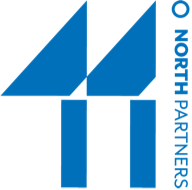In each of these conversations, my children voiced the questions that my husband, my friends and I have been asking ourselves since November 2016. What is our responsibility, both as human beings and as U.S. citizens? How do we protect our democracy and our planet? What can – and should – we do?
In the face of repeated ethical and legal offenses by #45 and his sycophants, it’s easy to feel desperate to do something — and uncertain about what to do. The overwhelming number and gravity of the issues creates inertia. We find ourselves stuck in the comfort of our daily lives, making small gestures of financial support to media organizations and reputable nonprofits that are fighting for truth and justice, writing letters to our Congressional members or participating in public protests. But the question “What else should we be doing?” continues to haunt us because we inherently know we can and must do more.
As a student of history, my natural inclination is to read and research. I have listened to podcasts, attended presentations and lectures, and signed up for newsletters in search of answers. Ultimately, my perspective was shaped by three insights:
- In 1835, Alexis de Tocqueville published the first of two volumes called Democracy in America. In it, he explains that creating and sustaining a successful democracy requires a decentralized political structure in which citizens have a high degree of political awareness, civic participation and decision-making authority. He describes the importance of being educated about the issues and the political process and argues that sufficient knowledge is a requisite of informed decisions, without which our democracy will not work.
- In Witness (2018), author Ariel Burger shares lessons that he and others learned from Nobel Laureate, Holocaust survivor and Boston University professor Elie Wiesel during their years in his classroom. In one poignant passage, Wiesel describes what it means to be human: “To be human is to ask why, to inquire, to interrogate each situation in a search for the truth, the truth of how we must act. We must face such questions rather than turn away from them; we must unmask and confront evil rather than reduce it to something comfortable. It is not comfortable to name and confront evil, but we cannot be too attached to comfort if we want to make the world a better place.”
- And, in their 2017 book of short essays, What Unites Us, authors Dan Rather and Elliot Kirschner remind us of the many different ways that we, as individuals, can be of service. “And then there are those I’ve met in my travels around the United States who give of themselves every day to strengthen their communities. They are teachers, firefighters, and guidance counselors. They volunteer in nursing homes and youth centers. They are part of an America of largely unapplauded service, but most who do this work have no interest in seeking recognition. They understand that each act of assistance is a vote of confidence in our common humanity.”
Thankfully, there are many worthwhile organizations and dedicated individuals doing great work across a variety of issues. Here are just a few that have lifted my spirits and helped me focus:
- States United to End Gun Violence formed following the Parkland, Florida MSD school shooting
- Fridays for Future founded by Greta Thunberg, the 16-year old, Swedish climate change activist
- Cristina Jimenez, the founder of United We Dream
- When We All Vote, to ensure that every eligible American is registered and ready to vote in every election
- The United State of Women, a national organization that amplifies the work of organizations and individuals at the forefront of the fight for women’s equality
My challenge is to let go of my comfort, overcome my inertia and follow my heart – to volunteer alongside others who are taking actions to drive change. In late 2016, Jen Hoffman launched a weekly, well-researched publication called Americans of Conscience Checklist. The AoCC is filled with actions we can all take to support our democracy. It also includes letters of appreciation to advocates on both sides of the political aisle and inspirational messages such as, “Are you attached to the parachute?” which concludes with this invitation: “There is a place for you in this circle of democracy. Come, take up a corner and marvel at how much we can do together.”
